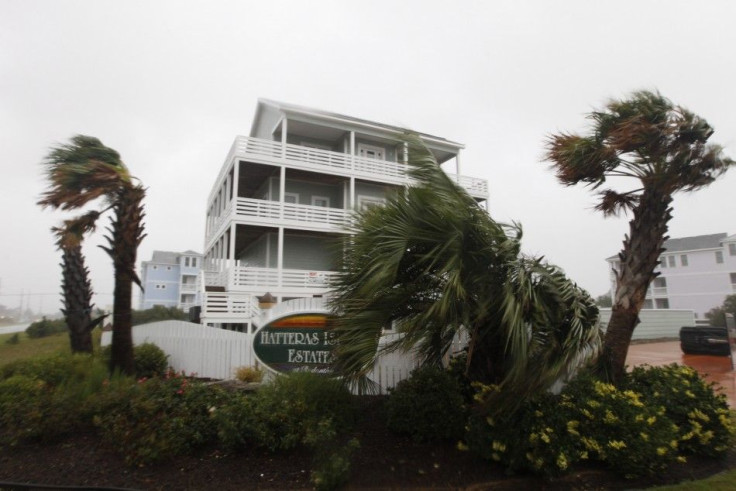Hurricane Irene: Powerful Storm May Cause Multi-Billion Dollars in Damages

Hurricane Irene, the monster storm that made landfall Saturday morning in Cape Lookout, N.C., and continues to snake its way up the eastern seaboard, is likely to impose billions of dollars in damages.
Some are speculating a financial catastrophe depending on how close Irene gets to New York City on Sunday and its strength by that point.
Columnist and statistician Nate Silver wrote: History suggests that the economic damage could run into the tens of billions of dollars – perhaps as much as $35-billion -- depending on the severity of the storm and how close it comes to the city. Unlikely but theoretically plausible scenarios could have the damage entering the realm of the costliest natural disasters of all time, and perhaps being large enough to have a materially negative effect on the nation’s gross domestic product.”
Roger Pielke, a University of Colorado professor and fellow of the Cooperative Institute for Research in Environmental Sciences, warned reporters that Irene is “probably going to be very damaging.”
Using the Great New England Hurricane of 1938, which killed hundreds across New England and Long Island and destroyed thousands of properties, as a guide, Pielke calculated that should such a storm were to occur now, it would cause $46-billion in damages.
This is partly due to the fact that the population is much higher now and many more expensive properties have been built along the coast.
Chris Hackett, director of personal lines policy at the Property Casualty Insurers Association of America, indicated that two-thirds of the New York's insured property value is comprised by coastal properties.
Ryan Sweet, an economist at Moody’s, pointed out to Associated Press that that the large metropolitan areas of the Northeast which lay in or near the storm’s path -- New York City, Philadelphia, Boston, Baltimore and Washington --represent 16 percent of national GDP and 14 percent of total employment.
If damage is severe and disrupts production for several days, there will be a noticeable impact on the national economy for August, he warned.
Meanwhile, the global equity research group at UBS estimates that stock markets had already priced in a “$10 billion” event, with Travelers Companies and Allstate Corp. expected to incur the most substantial losses.
.“On average, the performance of the [stock] index around hurricane landfall dates is worse after major events like Hurricane Katrina,” UBS stated. “However, after major events the market eventually discounts improved catastrophe reinsurance pricing and the stock perform in line with or better than the market.”
Katrina, which hit the Gulf of Mexico in August 2005, rang up insured losses totaling $71.3 billion. Hurricane Andrew in 1992 produced insured losses of $24.6 billion.
Beyond insurance companies, the travel and tourism industries will also likely suffer heavy losses due to cancelled flights and abandoned hotels and restaurants.
Michael Trevino, a spokesman for United Airlines-Continental Airlines told the New York Times that 2,300 flights would be cancelled, while JetBlue has grounded 1,252 flights in the New York area.
New York City and New Jersey have already shut-down all forms of public transportation, while Atlantic City has shuttered its casinos.
Fears of power outages (which have already occurred in parts of North Carolina and Virginia) in New York and New Jersey would undoubtedly exacerbate financial losses.
© Copyright IBTimes 2024. All rights reserved.




















